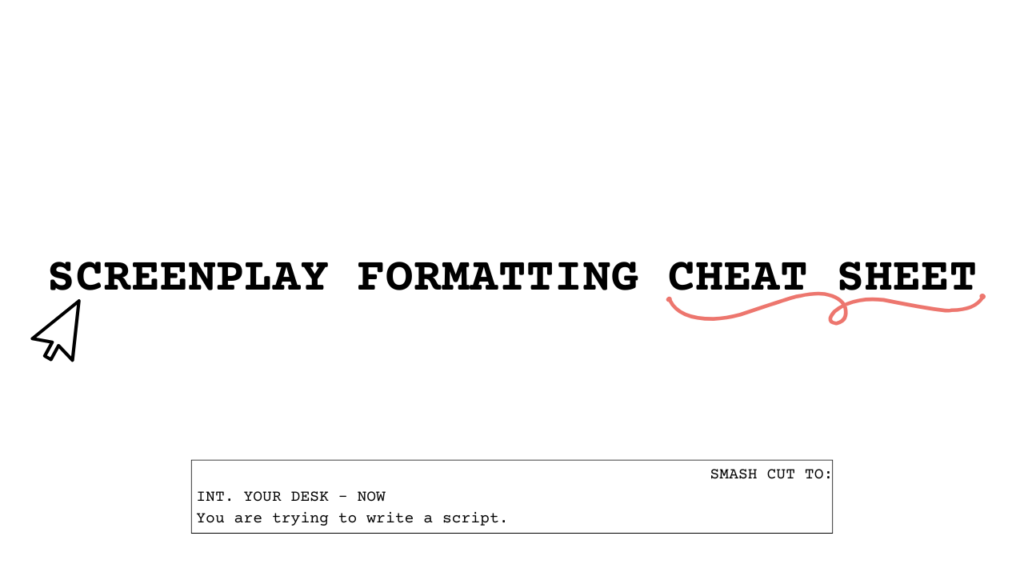Five steps to ace your improv audition

So you wanna be on an improv team? Great! Being on a team is one of the best things you can do for yourself. Why? For one thing, the key tenets of improv—listening, being a supportive team member, building on what’s given — apply to pretty much everything else. “One of the sayings of my improv group was, ‘Take improv off the stage and into life,’” says Abigail Schneider, former director of the Yale Ex!t Players. Also, you’ll make lifelong friends, and “group mind”—that zone you get into with a good team on a good night—is its own magical nirvana for comedy nerds.
Improv classes at UCB helped me to find my voice as an actor, a writer, and a sketch comedian. Improv for many is their passion and chosen art form, but for me it was a jumping off point to a deeper understanding of other forms of comedy. The improv teams that I joined while I was training allowed me to latch on to funny patterns and spot material more easily out in the real world, which has helped with writing in all the forms I do: essay, standup, sketch, and script-writing. As an actor, improv taught me about responding truthfully and listening. More important than all those things: improv gave me a shared language that I use to this day when I collaborate with other comedy writers.
Before you get in that audition room, here’s what you need to do.
Take a class.
It doesn’t have to be expensive, and the teacher does not have to be famous. Read class reviews and look for important comments like, “I felt safe to make lots of mistakes,” “I had FUN,” “I met great people,” and “My confidence is higher after taking this class.” Conversely, avoid classes that prompt comments like, “I lost a finger in this class,” “I hate myself more than ever upon graduation,” or “Turns out I’m not funny.” Improv is, at its core, empowering when it’s taught correctly.
If you can’t take a class, read Truth in Comedy by Chana Halpern and Del Close and Impro by Keith Johnstone. Actually, read those in addition to the class. (Skim the Johnstone. It’s the definitive text, but it’s ponderous.) (Abigail also recommends Improvisation at the Speed of Life:TJ and Dave’s Book.)
See a lot of improv — especially by the team you want to join.
Remember that your special voice will make you an asset to the team, but it doesn’t hurt at all to know the existing style of the team before you join it. Every comedy group, sketch or improv, has its own voice, and it pays to be familiar with the one you want to join.
Introduce yourself to the team.
Networking can be scary, but that improv class taught you fearlessness (or began the journey toward it), and you are on a mission to bring laughter to the world—a journey that begins with a single step. March right up after a show and say, “Hello! Your team is awesome! I’m auditioning soon! See you there!” (But make that your own, maybe with fewer exclamation points, ya know?)
I just noticed that I basically told you to stalk the team. Don’t stalk the team. Just be familiar with them and become a familiar face to them. Without night-vision goggles or grappling hooks.
Get your head in the game.
Get lots of sleep the night before. Take care of your precious brain, because that’s what makes you a funny human. Then the best thing you can do is “stop thinking about improv,” says Carsen Smith, GOLD’s 2017 summer intern and director of Vanderbilt University’s Tongue ‘n’ Cheek.
What to do instead? Before you go into the room, sit in a quiet spot with your hand on your heart and BREATHE. Soften your sternum and say “Thank you, self, for showing up today! This is gonna be a special opportunity to share my superpowers with fun people!”
Okay, maybe you’re thinking, “Wowww, this listicle just took a turn for the truly woo-woo.” Fair point. But remember that comedy is about finding the truth. If you want to make people laugh, you must be grounded, relaxed, and ready to listen and say what’s true for you. This starts with your heart.
A friend of mine took an improv workshop with the actor Alan Arkin, who was part of the Chicago community that created improvisational theater in the 1950s. He talked about “the zone,” and how addictive it can be, and how chasing that feeling can actually kill your comedy dead. For him, letting go of that chase, being self-aware and in touch with his truth; and physically taking his hand from his head to his heart to remind himself where the truth is—that’s his secret to great improv, as well as a good life. Sometimes woo-woo is good, folks. Don’t knock it ‘till you’ve tried it.
Side note: you can also get your head in the game by being like, “Head, this is a game.” GOLD workshop alum Tessa Abedon, who just got into Cheap Sox in her first year at Tufts, says: “What works for me is to think of it not as an audition, but as a game. I always remember how the games I used to play with my sisters included making up characters and really believing we were who we said, simply because it was fun. Embrace the chance to play, even as an adult.”
Listen to your scene partners.
Okay! Good, you’re still reading! We got through the witchy part together. The next step is to NOT PANIC. Whenever you are onstage, and even when you’re off, stay in the moment, and don’t try to make yourself shine by out-yukking everyone else. That’s standup. This is improv.
“Improv has no script, props, stage design, or costumes. So, the only thing you have is your scene partner, which is terrifying, but also great. You guys are in it together and you have to work together, by listening, to create a great scene,” notes Abigail Schneider. “And listening doesn’t just mean aurally, but physically and emotionally as well.”
I get it: Auditions are nerve-racking. That’s what’s exciting and/or vomitous, or both, depending on how you frame it. But whether you’re a thrill-seeker or an introvert who likes to make people giggle, you’ll be best served by keeping your knees lightly bent, breathing, feeling your feet on the floor. Your body will help you listen. Remember these physical things, and you will be able to apply everything you learned in class: Yes-and-ing, listening, and building relationships with your scene partners.
BONUS STEP!
Right after your audition, write down one thing you did fantastically well. Your brain will naturally be more aware of ways that you screwed up, and that’s okay. Brains are dicks like that. But if you want to make yourself a better improviser, force yourself to consciously note what you did well. That way you’ll be sure to grow that skill and CRUSH IT again next time you audition. Because you’re going to have many auditions. This is only one, not the only one.
Congrats! You’ve begun the marathon! Here’s to many more scary and wonderful comedy experiences.
Got any improv-related audition stories? Successes and failures equally welcome — it’s all part of the journey. Share with us @GOLDcmdy!




